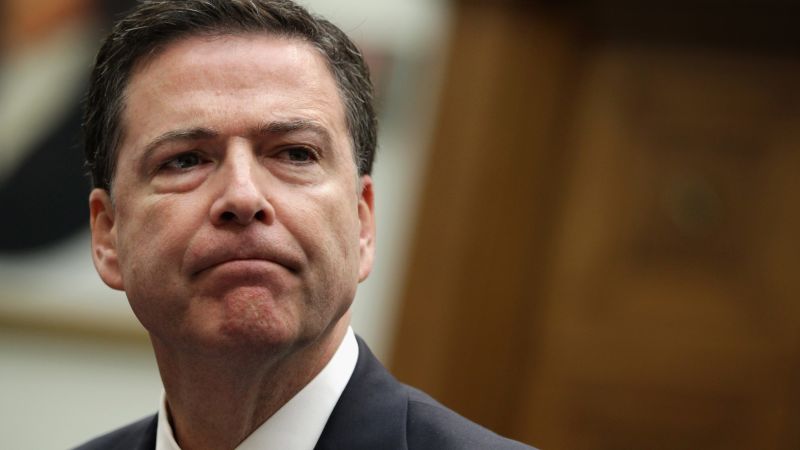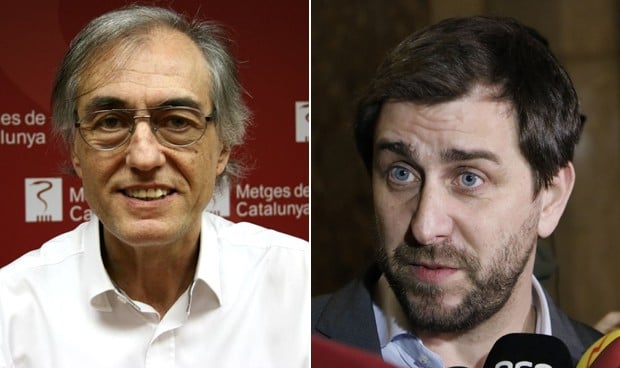Russia's Response To Trump's Criticism Of Putin: Emotional Or Strategic?

Table of Contents
Analyzing Trump's Criticisms of Putin
During his presidency, Donald Trump's stance towards Vladimir Putin oscillated, leading to a series of criticisms – some direct, others implied. Understanding the context of these criticisms is vital to analyzing Russia's subsequent reactions.
- Examples of direct criticism: Trump occasionally condemned Russia's actions in Ukraine, although such criticism was often tempered with praise for Putin personally. For instance, statements made during press conferences or interviews could be categorized here. Specific dates and transcripts should be referenced for accuracy (this requires further research to provide specific examples).
- Instances of implied criticism: Trump frequently contrasted American values with what he perceived as Russian authoritarianism. This implied criticism, often subtle, nonetheless carried significant weight in the context of US-Russia relations. These indirect criticisms, woven into speeches or tweets, require careful analysis to extract their full meaning.
- Contextual factors: Trump's domestic political climate significantly influenced his public statements regarding Putin. His desire to improve relations with Russia, combined with domestic political pressures, frequently shaped his rhetoric and the timing of his pronouncements. These internal factors need to be considered when analyzing Russia's responses.
Russia's Official Responses: A Case Study in Strategic Communication
The Kremlin, the Ministry of Foreign Affairs, and other Russian government bodies crafted official responses to Trump's criticisms, showcasing a calculated approach to strategic communication. Their responses were far from impulsive; rather, they appeared to be carefully calibrated to achieve specific political objectives.
- Examples of statements: Official statements released through press releases, briefings, and diplomatic channels require thorough analysis. Identifying the key messages conveyed, the target audience, and the intended effects are vital.
- Analysis of tone and language: The Kremlin often employed a tone ranging from defensive to dismissive, and sometimes counter-accusatory. A meticulous examination of the language used reveals underlying strategic aims and the nuances of their communication strategy.
- Strategic goals: Russia's official responses often sought to deflect criticism, maintain a semblance of neutrality, or even subtly leverage Trump’s statements to advance its own geopolitical agenda. Identifying these underlying strategic objectives requires careful interpretation.
Unofficial Responses and Media Manipulation
Beyond official statements, Russian media and state-affiliated outlets played a significant role in shaping the narrative surrounding Trump's criticisms of Putin. This involved deploying propaganda techniques designed to influence both domestic and international public opinion.
- Narratives pushed by Russian media: Russian media often framed Trump's criticisms within a broader narrative of Western bias against Russia, portraying Putin as a strong leader defending national interests against unfair attacks.
- Propaganda techniques: Russian media outlets frequently employed techniques like disinformation, selective reporting, and the amplification of fringe narratives to counter negative portrayals of Putin and Russia. Identifying and analyzing these techniques sheds light on the sophistication of their media manipulation strategy.
- Effectiveness of media campaigns: Evaluating the effectiveness of these campaigns requires assessing their impact on public opinion in Russia and internationally. Did these efforts successfully shape perceptions of Trump and Putin's relationship, and did they influence international relations?
The Emotional Dimension: Assessing Putin's Personal Reactions
While analyzing a leader's emotional responses is inherently challenging, observing subtle cues in Putin's public appearances may offer glimpses into his personal reactions to Trump's criticisms. However, it's crucial to approach this aspect with caution.
- Examples of emotional cues: Subtle changes in body language, tone of voice, or the choice of words in Putin's speeches may reveal underlying emotional reactions. Analyzing video footage and transcripts can provide valuable insights, though interpretation must be careful and nuanced.
- Impact of personal feelings: Even if Putin’s personal feelings were influenced by Trump's criticisms, it is essential to assess how these emotions potentially affected official policy and Russia’s strategic response. Did emotions override calculated strategic decisions, or were they factored into the overall response?
- Challenges of assessment: Objectively assessing someone’s emotions from public appearances is inherently difficult. Body language and tone can be misinterpreted, and statements can be carefully crafted to project a desired image. Therefore, this section requires careful consideration and acknowledges the inherent limitations.
Weighing the Evidence: Strategic Calculation vs. Emotional Response
Synthesizing the evidence presented above reveals a complex interplay of strategic calculation and emotional responses shaping Russia's reaction to Trump's criticisms of Putin.
- Arguments for strategic response: The coordinated nature of Russia's official and unofficial responses strongly suggests a deliberate strategic approach. The consistent messaging across different platforms points toward a well-planned communication strategy aiming to achieve specific geopolitical objectives.
- Arguments for emotional component: While primarily strategic, certain aspects of Russia's response may have been influenced by Putin's personal feelings towards Trump and the perceived attacks on his leadership. However, the degree to which this influenced official decisions remains difficult to definitively assess.
- Conclusion on the balance: Ultimately, Russia's response seems to be a blend of strategic calculation and emotional considerations. While strategic objectives clearly guided most actions, Putin’s personal reactions likely played a secondary but not insignificant role in shaping the overall approach.
Russia's Response to Trump's Criticism of Putin: A Verdict
In conclusion, Russia's response to Trump's criticisms of Putin appears to have been predominantly strategic, driven by calculated attempts to manage its image, deflect criticism, and advance its geopolitical interests. While an emotional element may have played a role, the evidence overwhelmingly points to a sophisticated, multifaceted response aimed at achieving specific political and diplomatic goals. Understanding the nuances of this interaction is vital to comprehending the complexities of US-Russia relations. To further explore this dynamic, research into Russia's foreign policy, Putin's leadership style, and methodologies for analyzing Russia's response to international criticism is strongly encouraged.

Featured Posts
-
 Mas De 50 Colegios En Aragon Con Listas De Espera Que Futuro Para Las Familias
May 29, 2025
Mas De 50 Colegios En Aragon Con Listas De Espera Que Futuro Para Las Familias
May 29, 2025 -
 Hyacinth Planting Calendar Ensuring Beautiful Spring Blooms
May 29, 2025
Hyacinth Planting Calendar Ensuring Beautiful Spring Blooms
May 29, 2025 -
 Liverpools Road To Premier League Glory Key Moments In Their Title Contests
May 29, 2025
Liverpools Road To Premier League Glory Key Moments In Their Title Contests
May 29, 2025 -
 Vater Machinery Awarded Top Honors By Cnh Capital New Holland
May 29, 2025
Vater Machinery Awarded Top Honors By Cnh Capital New Holland
May 29, 2025 -
 Hujan Di Bandung Besok 26 3 Simak Prakiraan Cuaca Jawa Barat
May 29, 2025
Hujan Di Bandung Besok 26 3 Simak Prakiraan Cuaca Jawa Barat
May 29, 2025
